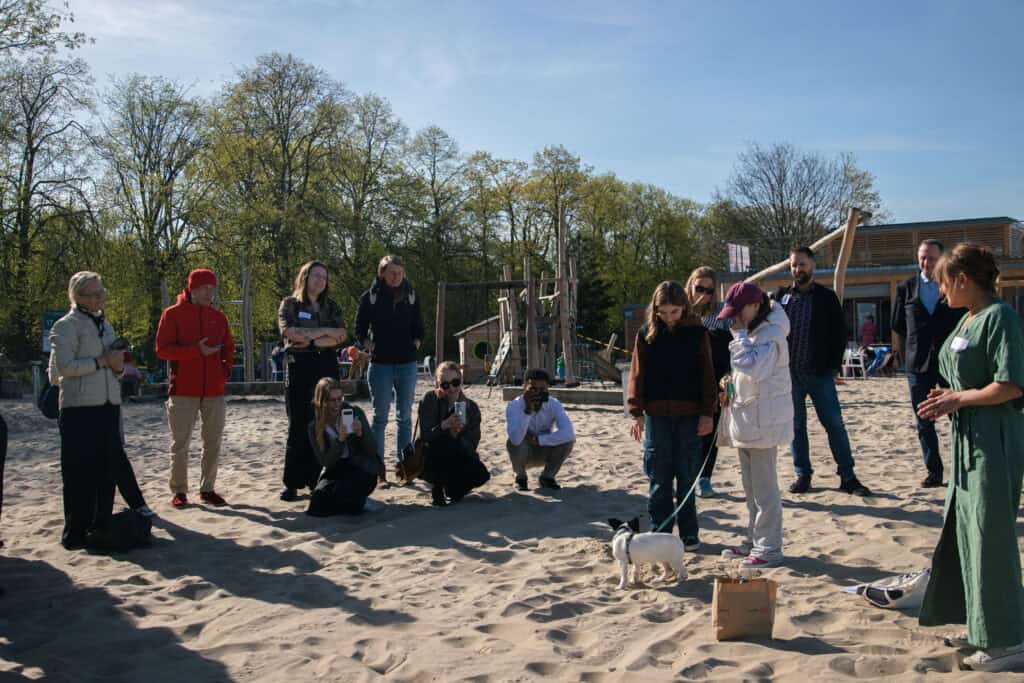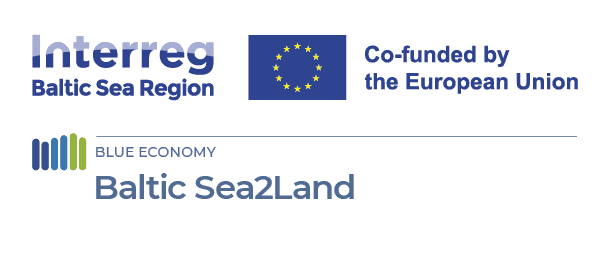
Meeting with Sopot and South Baltic Sea Stakeholders: Sea2Land Navigator Workshop at the 4th Mission Arena and Project Meeting in Poland
19 May 2025
From April 28 to 30, Baltic Sea2Land project partners gathered in Poland for the 4th Mission Arena, which brought together stakeholders from Poland, Eastern Germany, Denmark, and South-Eastern Sweden as well as other Baltic Sea region and European countries. The Sea2Land Navigator was in the spotlight during a dedicated workshop at the event. Following the Mission Arena, Baltic Sea2Land partnership held a meeting to discuss progress, as the project enters its final year of implementation and many results are beginning to take shape.
At the Mission Arena: Spotlight on the Navigator
The 4th Mission Arena, held in conjunction with the Blue Economy Baltic Forum and the Polish EU Council Presidency, was co-organised by EU-funded Blue Mission BANOS project and the Sustainable Blue Economy Partnership. Around 200 participants representing stakeholders from the South Baltic Sea region came together to discuss key challenges in the blue economy, including shipping and ports, maritime security, and sustainable food production. The Baltic Sea2Land project had a unique opportunity to host a dedicated workshop titled “Tools for Multi-Level Governance,” highlighting innovative approaches to integrated coastal and maritime planning. Participants representing stakeholders from the South Baltic Sea region came together to discuss key challenges in the blue economy, including shipping and ports, maritime security, and sustainable food production.
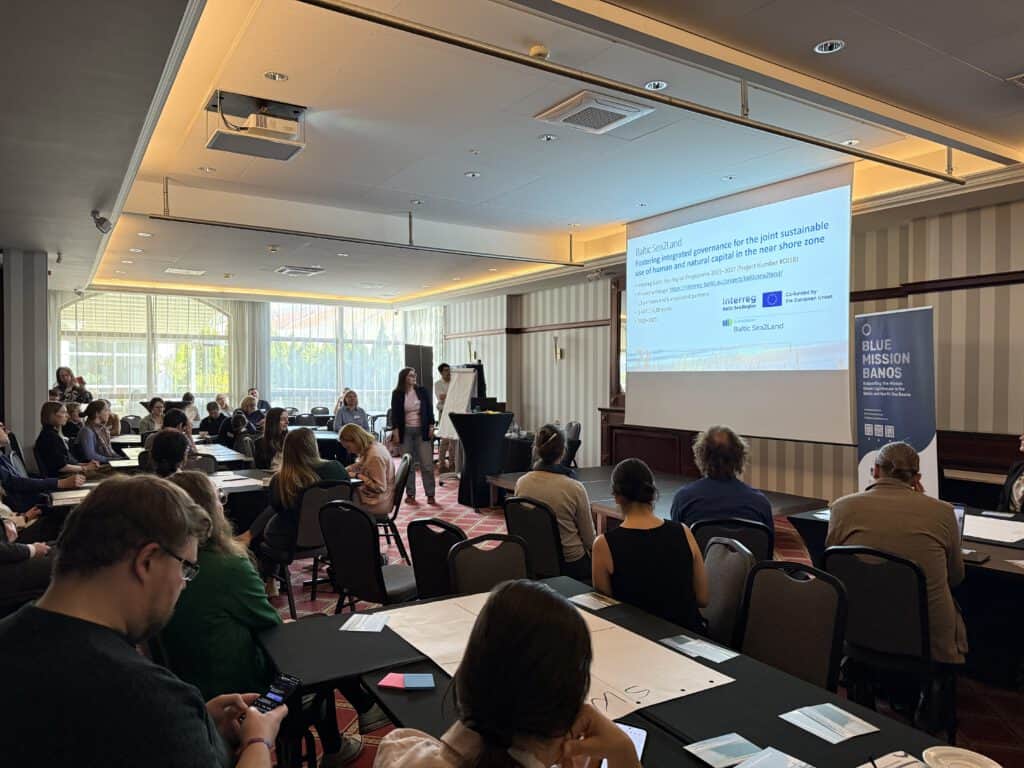
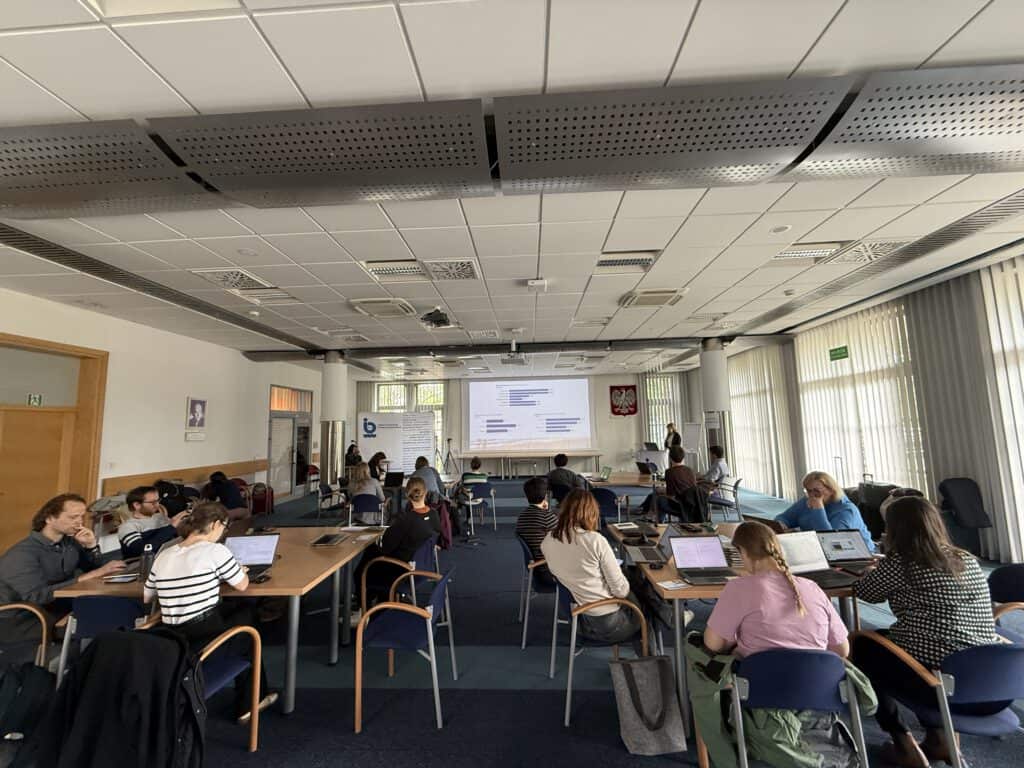
The workshop was built in an interactive and practical way, where Baltic Sea2Land project team introduced participants with the projects’ main solution – the Sea2Land Navigator platform.
The story behind the Navigator is based on importance of collaboration between stakeholders as crucial for the success of any policy action, such as planning an offshore windfarm. The platform is designed as free and open resource to support planners, policymakers, and NGOs in tackling this and other complex stakeholder dynamics, policy frameworks, and environmental challenges.
The Navigator is co-created by scientists, authorities, and stakeholders from various governance levels, it provides structured methods for clarifying project goals, involving stakeholders, and identifying their roles and influence. The platform offers a suite of innovative interactive materials to engage stakeholders, collaborate effectively, share data, and evaluate the progress to enhance strategic decision-making. To tailor and improve The Navigator functionality and usability, it has been tested in diverse cases across the Baltic Sea region during 2024—ranging from offshore wind farm development (e.g., Poland and Finland) to national-scale coastal access challenges (e.g., Latvia).
The Navigator provides clear guidance and step-by-step instructions to support planners work. During workshop Participants were engaged in a guided SWOT exercise guided by Navigator platform, applying the task for a coastal governance challenge. The session provided an opportunity to test its features, explore its relevance to work, and contributed with feedback for further development based on their reflections.
After the workshop participants were interested to explore the Navigator more in depth and proposed useful ideas for its improvement in practical work such as information about legal frameworks in each country related to maritime and coastal planning processes.
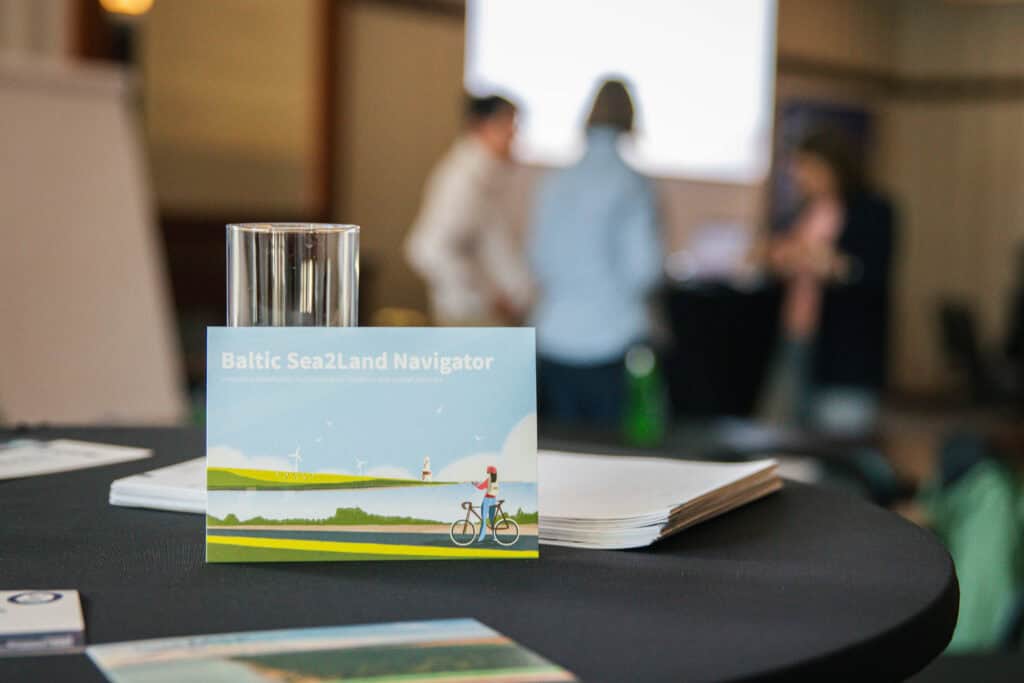
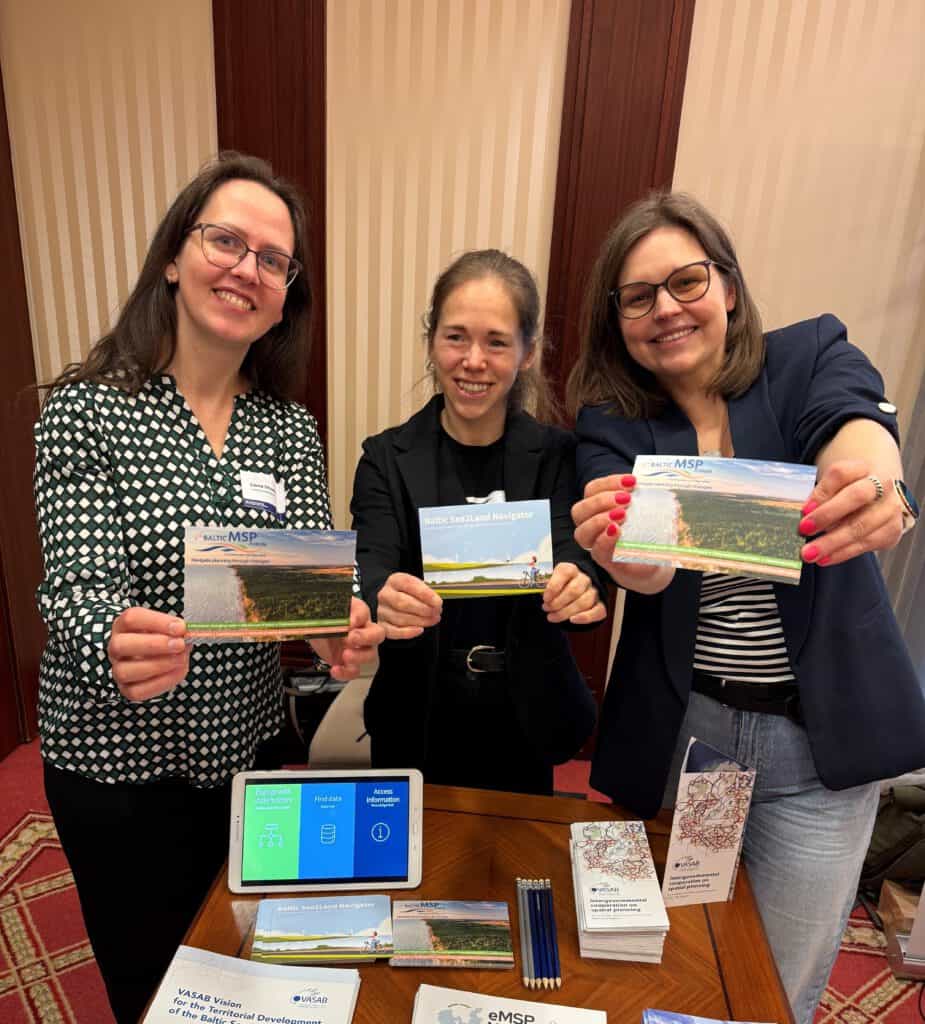
The 4th Mission Arena event culminated in the co-creation of a roadmap guiding the region toward achieving the goals of EU Mission Oceans & Waters. Participants voted on the top actions (find out more here) to be taken in the South Baltic region to improve the circularity and sustainability of the blue economy. There are now three key actions selected for each of seven key themes:
- MSP and Multi-Use
- Marine Protection and Restoration
- Citizen Engagement and Education
- Blue Foods
- Governance
- Sustainable Maritime Infrastructure
- Shipping and Ports
For the Governance theme, many specific and practical actions were suggested and voted on by participants. The action that received the most votes was:
“Promote co-creation and collaboration among practitioners. Improve communication, engagement, and strengthen multi-level governance between stakeholders by establishing a common platform to exchange practices and lessons learned.”
This action was originally formulated during a workshop organized by the Baltic Sea2Land partnership. It was a meaningful acknowledgment that our emphasis on enhancing and actively practicing a multi-level governance approach – which applied throughout the implementation of the Baltic Sea2Land project – resonated strongly with a diverse group of participants.
Preparing the Navigator Tool for Future Users: Improving Functionality and Clarity
One of the project partners, IOPAN, hosted a one-day partner meeting focused on enhancing the Sea2Land Navigator platform and preparing for the project’s final phase, including the upcoming final conference.
During the meeting, partners discussed feedback on user experience with the current version of the Sea2Land Navigator that was collected via user feedback survey implemented by Navigator’s developer team to collect ideas for improving the functionality and user experience in the tool. As a result, the partnership agreed on some key tasks that will be implemented during the upcoming months, including enriching Knowledge Hub with extra materials and improving the user experience in the MLG tool. However, improvement of translation of the MLG tool into various languages remains an important and outstanding task. It was also acknowledged that the tool might be perceived as complex and time-consuming, and to prevent this perception from becoming a discouraging obstacle, its advantages should be communicated transparently. Categorizing valuable practices remains a challenge due to thematic overlap, underlining the need for improved grouping methods or internal linking within the tool.
To ensure the project’s sustainability, partners discussed enabling content updates beyond the project’s end and conducting a follow-up survey to gauge ongoing interest. In terms of data harmonization, inconsistent data formats continue to pose a challenge, but a validation tool—demonstrated during the meeting—will help maintain data quality moving forward.
Preparations for the final conference and the 5th Baltic MSP Forum are progressing well, with all partners on track with their responsibilities. A more intensive phase of activity and communication is expected to begin after the summer.
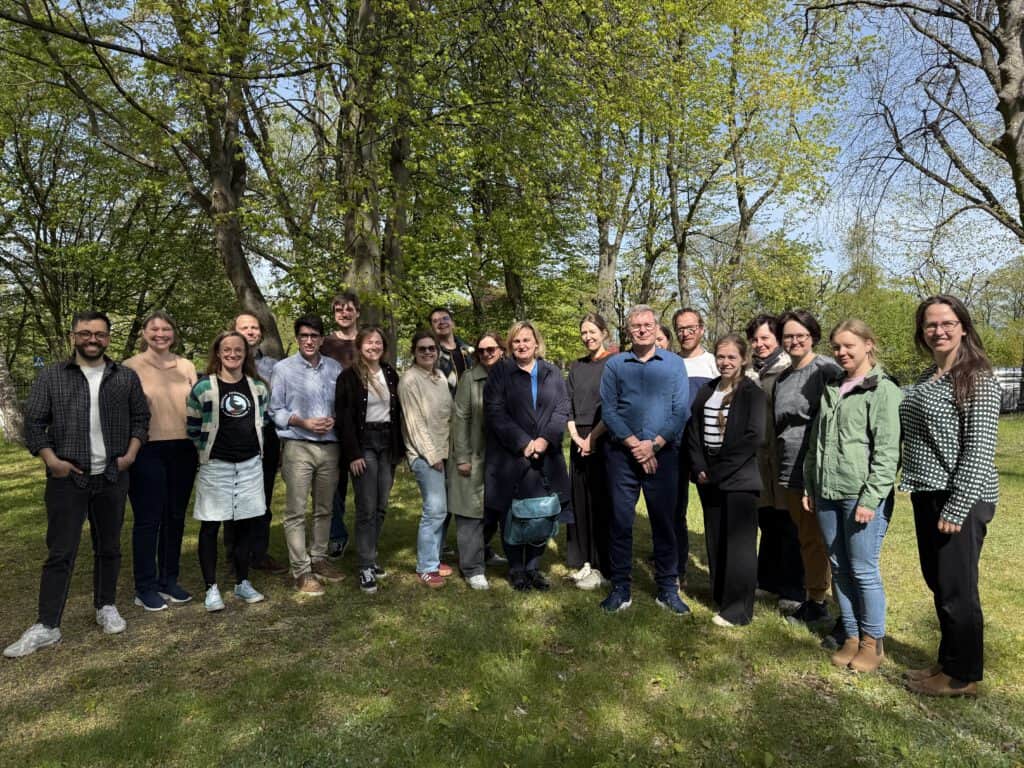
Lastly, discussions around the MOOC (Massive Open Online Course) on multi-level governance and the Sea2Land Navigator tool explored two options: creating experience-based video content or developing an example case to integrate into the Navigator. A demo case will be prepared to support decision-making on the best approach.
There are still many creative tasks to complete before partners reconvene in person in Riga, in November 2025.
Copyright: Mission Arena 4 photo gallery
